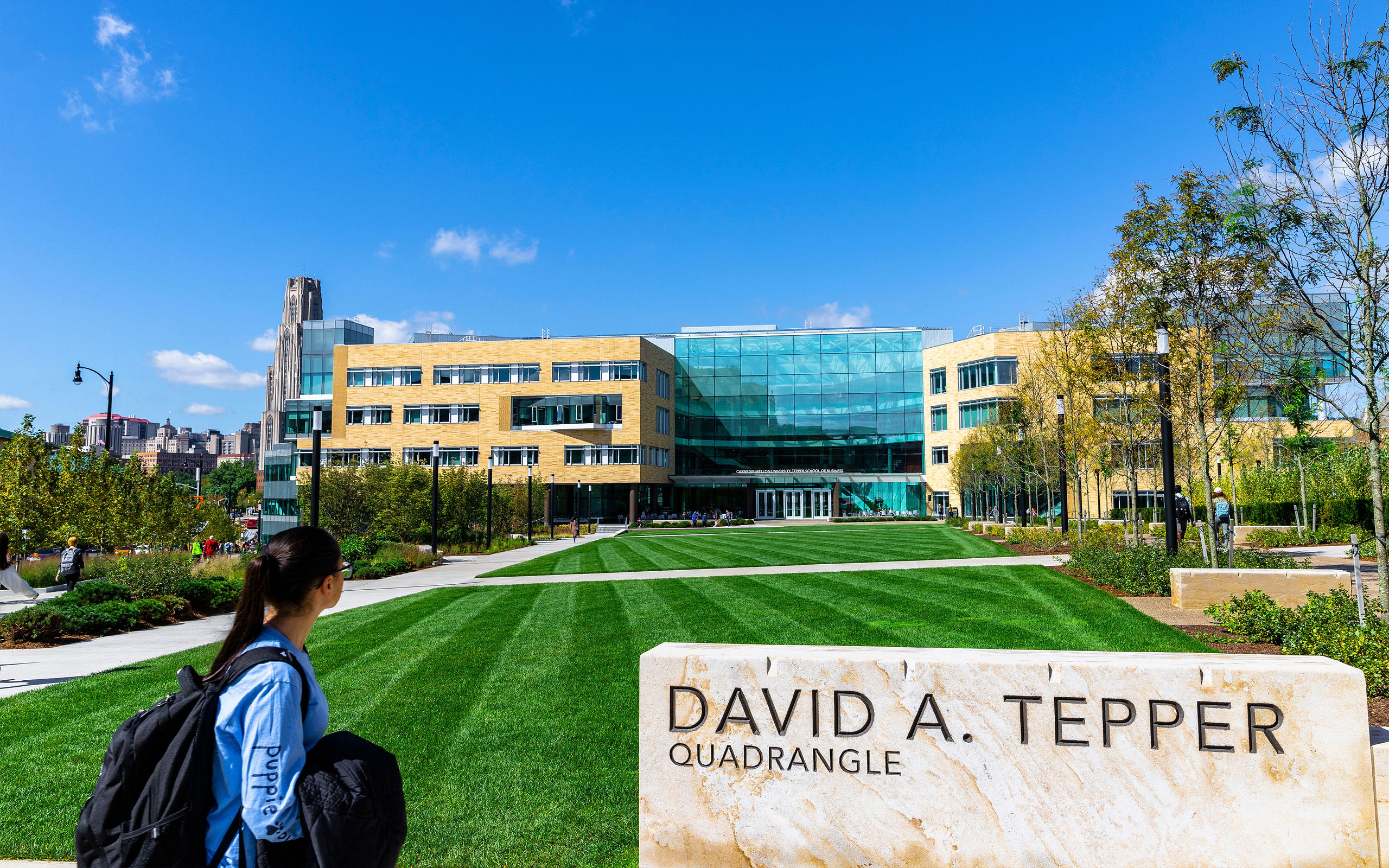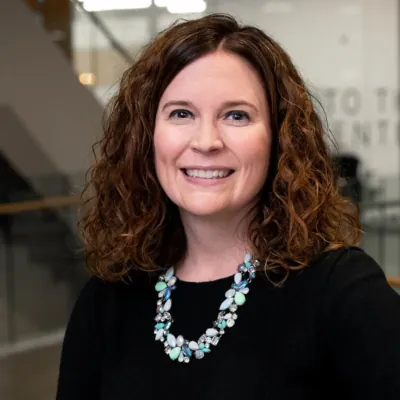
Every case study comes down to one question: What did a company do or didn’t do?
Not ‘Was it right or wrong’ – history ultimately reveals the wisdom of strategy and execution. Fact is, business cases revolve around process and possibility: judging the facts at hand and options on the table. Between framing issues and persuading peers, business majors learn how to maximize advantages and minimize risks through cases.
Business schools apply the same approach. Like case protagonists, they face the same question: How do you position students for a VUCA world where business models, customer expectations, and job skills are constantly evolving – and rarely in a clear direction or a comfortable pace? The answers, of course, vary by school.
SAME FUNDAMENTALS, DIFFERENT EXECUTION
Take the University of Washington’s Foster School. Based in job rich Seattle – home to a wide swath of tech talent – Foster leans heavily on company projects. In the process, they expose students to best practices re-shaping industries and decision-makers who can widen their networks. Atlanta-based Georgia Tech has adopted a similar path. The wrinkle? The Scheller College invests heavily in measures to build student satisfaction – a strategy that has been equally effective at the Wake Forest School of Business. Building on that, the University of Houston’s Bauer School’s has infused a student-centric philosophy into every corner of its program. Not only has Bauer deployed a dizzying array of programs to incentivize student growth, but also carved out niches in sometimes-undervalued career paths like sales.
Yes, each of these schools could make a business case – a roadmap for setting up students for long and lucrative business careers. What do these business schools do that’s different? How have they perfected a recipe that other programs still struggle to implement? These questions are the basis for P&Q’s annual “10 Undergraduate Business Schools To Watch.” Entering its fifth year, this compilation profiles the undergraduate programs with momentum going into 2021. This year’s class ranges from underrated gems like Binghamton University and the Worcester Technic Institute to household names like Carnegie Mellon University and the University of North Carolina.
Each school places different weights in different areas. However, they share one common trait: an uncompromising commitment to amplifying the talent and spurring the growth of every student who comes to learn.
Want to know where business is headed? You can find out by watching what business schools are doing. Here are 10 programs whose innovation and commitment are shaping what the world can expect in the coming decades.

Tepper School Building
Carnegie Mellon University, Tepper School of Business
Intimate and interdisciplinary.
High tech and high intensity.
Enigmatic and engaging.
Carnegie Mellon students can be a dizzying mix. To the public, the school is a blue collar Ivy, an academic powerhouse renowned for Computer Science and Engineering. Below the surface, you’ll also find a creative impulse, a fine arts haven whose alumni range from Andy Warhol to Zachary Quinto. That mix of quant drive and artistic curiosity extends to the Tepper School of Business, whose alumni have recently run companies like Kimberly-Clark and Salesforce.com.
Liam Walsh, a 2020 Tepper alum and P&Q Best & Brightest business major, attributes the Tepper difference to its diverse student body. “The moment you arrive on campus, you are surrounded by motivated, extremely smart, and friendly individuals. I have enjoyed every moment of learning about a classmate’s start-up idea, their experience growing up in another country, and debating business topics that we discuss in class.”
You could say the Tepper School is one where students self-select. After all, it is a place where business fundamentals are immersed in a data-driven philosophy and technological applications. As a result, Tepper business majors become bi-lingual: able to illustrate frameworks and details to technologists and big picture applications to everyone else. This ability to shift from deep to shallow and wide to narrow is what makes Tepper graduates so valuable to employers.
How valuable? Last year, Tepper business majors averaged $90,099 in starting pay, second-best among American undergraduate business programs. Not surprisingly, Tepper has climbed from 22nd to 8th over the past two years in P&Q’s Undergraduate Business School Ranking. At the same time, Tepper remains one of the most difficult undergraduate programs to earn admission. Just 14.26% of applicants are ultimately accepted. Among those who earn the nod, 95.9% graduated among the top 10% of their high school class.
In other words, the business students can hold their own against any major on campus. Better still, the department is housed in the Tepper Quad, the largest building and de facto center of campus. Think of it as a space where business majors can come together with engineers, programmers, and scientists to commercialize research and prototypes. That helps make the Tepper Quad – and the Tepper program – an experience like no other, adds Jennifer Wegner, the executive director of Tepper School undergraduate business administration, in a 2020 interview.
“Since the doors opened, 100% of the undergraduate courses are held in the building – allowing for creative collisions with faculty and staff in the hallways and open spaces to continue with class discussions, attend office hours, and collaborate on course-related projects and co-curricular activities. Quite simply, the Tepper Quad has changed the game and made the Tepper School of Business a destination not just for business students but for students and faculty from across campus.”
5 QUESTIONS WITH JENNIFER WEGNER

Jennifer Wegner
P&Q: Over the past two years, you’ve climbed from 22nd to 8th in our newest undergraduate business ranking. What are some new and upcoming developments in your program that will enhance the business program for future business majors?
Wegner: “We are excited to share that, in the last year, we reviewed our curriculum to introduce updated concentrations, affording students the opportunity to study a particular area of business in-depth with four upper level electives. We’ve also modified the Tepper general education experience to allow students greater flexibility to explore courses across Carnegie Mellon University. We continue to expand experiential learning experiences in our business courses and are building more co-curricular experiential opportunities to launch in the next year. Our student clubs continue to be very active and we support consulting and finance clubs that are newly affiliated with the Tepper School. Under our new Dean Bajeaux-Besnainou’s leadership, we are primed for even more success!”
P&Q: Last year, your business grads averaged $90,099 to start, 2nd best among American undergraduate programs. What types of programming, through your career services, classroom programming, and extracurricular activities that give your students an advantage in the marketplace?
Wegner: “We are very proud of our graduates’ career outcomes. Career development begins during first-year orientation, which captures our commitment to ongoing career development as a normal part of the student’s education. Multiple required business courses introduce and continue building career and professional skills throughout the four years, and faculty often invite alumni into courses to give students further understanding and insights into potential career paths. We host professional treks and alumni chats to provide students further exposure into career areas that are very popular and are hosted on-campus and on location when available. Our student clubs offer many chances to network and engage with corporate recruiters and alumni and students take advantage of these events.”
P&Q: Tepper accepts just 14.26% of applicants who average 1491 on their SAT. In fact, over 95% of your admits are among the top 10% of their high school class. What are two key qualities that prospective students must possess to land a spot in your program? What are two things that prospective students can do to enhance their odds of landing a spot at Tepper?
Wegner: “We encourage students to take the most robust curriculum available to them during high school. We recognize that our students come from around the world and all have different access to courses, so whatever the most rigorous courses are available to them, they should be pursued. We also seek to understand the leadership experiences that students have in high school and in their communities to demonstrate their professional and leadership skills that they would bring to the Tepper School community if admitted and matriculate.”
P&Q: What are your undergraduate business program’s two biggest strengths and how do make students better prepared for business once they graduate?
Wegner: “A hallmark of the Tepper School is our quantitative approach to business. Our curriculum is based in a quantitative, management science approach. Tepper students develop strong analytical and leadership skills for their career pursuits. Further, the Tepper School has been very deliberate in our growth to ensure that students experience a personal college experience and work closely with faculty and their peers in courses, clubs, and in the community. Through these experiences, students develop excellent communication and collaboration skills and a robust peer and mentor network.”
P&Q: When alumni look back on their time at Tepper, what would they consider to be their signature experience? How does it bring the best of the best of the Tepper experience together?
Wegner: “The Tepper School class size is intentionally small to ensure that students have a personalized, close-knit experience that continues when they graduate. Classmates are familiar faces for Tepper undergraduate students and the support they provide for each other continues when they become peers as alumni.
Our senior capstone brings students together in a culminating intellectual experience that is a signature course. The capstone is a simulation wherein students assume the roles of senior leaders in a company and host board meetings during the semester that rely on alumni volunteers who give back to the Tepper School through service, guiding students through the course. These enduring relationships among alumni and our student community is a point of pride within the Tepper School.”
Go to next pages for in-depth profiles of North Carolina Kenan-Flagler, Minnesota Carlson, Georgia Tech Scheller, and more.











Questions about this article? Email us or leave a comment below.